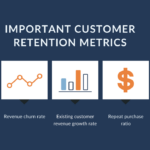A data breach or a small business hack can become the bane of your business’s existence. It can mean a major loss of productivity and money, and it could even cripple your business permanently. The key is to prevent a breach as much as possible and to act quickly if the need arises. In the event your company is hacked, here is what you should do — and a few tips to help avoid it in the first place.
Check Your Compliance
All businesses that collect credit card data must adhere to PCI security standards. These regulations dictate how sensitive information is handled in order to protect the cardholders, lenders, and you. In a nutshell, small businesses are required to have safeguards in place, such as firewalls, antivirus software, encryption, and password protection.
If you’re found to be non-compliant, your small business can face stiff penalties. Credit card companies can charge you between $5,000 to $100,000 per month, depending on factors like business volume and the level of noncompliance. Also, if there is a breach as a result of your failures, you could be subject to fines and lawsuits from affected customers.
Trouble with a Capital T
You might not be sure if you’re in compliance or not, and regulations can be tough to decipher. Or, perhaps your company doesn’t handle credit cards, so you feel there isn’t a set of rules to help you navigate. You can perform your own data security audit to see where your company stands. Your in-house computer gurus are ideal to perform a thorough risk assessment to help find and resolve the weak spots in your data handling.
Many small businesses are too small to have their own IT team, let alone keep a data security specialist on staff. You might think you’re too small to bother with worrying about data security anyway, but any business — from giant corporations to solopreneurs — can fall victim. It just takes clicking a wrong email attachment or one disgruntled employee to lead to trouble. Instead of hiring someone full-time, consider hiring a freelancer instead. You can find professional hacking services on freelance job platforms. These specialists will attempt to penetrate your network and identify weak spots.
Hire Expert Help
If conducting an audit is beyond your team’s scope, you can always hire a freelance data security agency to assist. Similarly, in the event your small business is hacked, you can hire a computer forensics expert to aid your recovery. These professionals would be your go-to when it comes to identifying the source of trouble and stopping the flow of sensitive data.
The sooner your business gets the specialized help necessary, the sooner you get back to work, and the better your chances for survival. What’s more, depending on the kind of breach that occurs, RocketLawyer notes you might have just 72 hours to report the incident to authorities.
Alternatively, if you have an interest in IT, you could learn how to tackle these problems on your own. Many online colleges and universities offer an array of different programs that can help you earn your bachelor’s degree in this department.
Other Kinds of Damages
Being compliant and stopping trouble ASAP not only protects your money and your customers’ money, but it also protects your reputation. As CSO explains, consumers quickly lose trust in organizations and businesses that get hacked. Fearing the worst, customers will often jump ship, leading to a painful (and frequently irreversible) loss in revenue.
Protecting your reputation following a breach is a must. If your small business is hacked, it’s in your best interest to respond quickly and to be transparent in how you are handling the issue. Explain to consumers how it happened, discuss the measures taken to resolve the problem, and reveal what you are doing to avoid a recurrence.
A firm that focuses on public relations can help here.
Education Is Power
Being hacked can truly happen to anyone. Even with the best security measures in place, it takes just one wrong click on a dangerous email to get your business in trouble. What’s more, it doesn’t necessarily have to happen at work. Many people use universal, easy-to-remember passwords. If a staff member is hacked and uses the same password for all accounts, trouble can spread like wildfire. So, be sure your team is trained on recognizing a cyberthreat for what it is, and establish a policy relating to passwords.
It’s easy to see how important data security is. Recovery can be a long, bumpy road, and small businesses have much to lose. Enact data handling guidelines, connect with experts as needed, and if you’re the victim of a data breach, respond quickly and appropriately.
If you have any questions or uncertainties around what to do in such an event or need help planning for preventative measures, feel free to call the team at AngelytiX to discuss the issue more.





